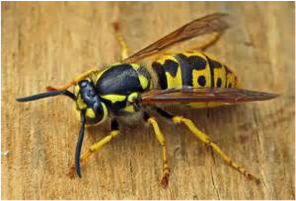We are the first UK Pest control Company to gain new mark of quality
December 17, 2015
Pest Awareness Training – Food Industry
January 8, 2016A raft of new legislation and guidelines has meant that our industry is now more than ever a specialist one, requiring specialist people with extensive knowledge of legislation, specifications and equipment. It should no longer be the case that the cheapest company gets the work and we need to recognize that for most organisations, cost is only a part of the overall decision making process.
A long term partnership is preferable and the pest control contractor must want to become part of your team and you need to be sure that you can you work with them. You can ask to meet all the Technicians who will be coming to your site to see if this is the case. Have these Technicians got experience in your industry? Are their skills up to date? Can they work safely? Technicians should belong to PROMPT (Professional Register of Managers and Pest Technicians), which is evidence of up to date training.
Technicians should be able to provide further evidence of competence such as BPCA/RSPH Level 2 in Pest Control, food safety qualifications and a full training portfolio. Can the contractor carry out Technical Inspections and what additional qualifications and experience does the Senior Technician or Biologist have? They should also have the skills to carry out Pest Awareness training for your staff?
The company itself should be able to demonstrate financial stability and have a strong track record of pest control in your industry, providing at least 6 trade references. Ask if you can call these companies to check and don’t be afraid discuss any concerns that you may have. The company should have enough trained Technicians in your geographical area and have evidence of corporate BPCA (British Pest Control Association) membership.
Are they accredited to the new European Pest Control Standard EN 16636. This standard shows that the contractor has proved their competence to an independent auditing body. They should also be able to provide proof of adequate public liability, product liability and employers’ liability insurance cover.
The pest control company should send a representative to carry out a survey of your premises. A clear report should be provided to detail exactly what pests are covered, how many routine visits and importantly, the emergency call out response times and procedures.
This is your opportunity to tell them about your requirements and detail any specs that you are working to e.g. BRC, Tesco, Soil Association, Marks & Spencer etc. Ask if they have the most up to date BRC/Retailer specifications, as it is unlikely that they have access to the same online resources that you do.
Check their documentation-It should provide accountability on both sides and be suitable for your needs and if not – are they prepared to change it to give you a bespoke service. If an electronic system is being used, do you have a manual back up folder? This may save you from non-conformances if an auditor cannot access your records on the day of the site visit.
At this stage, fly control unit servicing should be discussed (Shatterproof tubes, frequencies etc.). Are there adequate Technicians to do both Technical Inspections and Routine servicing? Do you require two Technicians to carry out fly control unit servicing and will this need to be done out of normal working hours? A clear costing and length of the contract should be provided on this basis.
An important aspect of pest control is denial of access to pests and maintenance of an environment which discourages the development of infestation. A professional contractor will not merely throw pesticides at a problem but may ask you to carry out work such as proofing and cleaning in order to eradicate or prevent a pest problem.
Who will actually own the pest control equipment- internal and external bait stations, report folders and electric fly control units, moth traps and insect monitoring devices. It is best to document this at the start of the contract.
The contractor should be able to demonstrate a good Health and Safety record and give assurances that they comply fully with all aspects of the Control of Pesticides Regulations 1986 and other relevant legislation such as the Control of Substances Hazardous to Health Regulations 1999
Other considerations are their ability to supply, install and maintain insect screens and electric fly control units. Do they have the knowledge and experience to undertake trend analysis on pest problems and interpret them in a meaningful way? Can they carry out annual/bi annual service reviews and what documentation do they provide (A frequent non-conformance for BRC Audits)
You may also wish to carry out an internet search that may alert you to any potential problems. I would also recommend that you call their office and make sure that they answer in a timely and professional manner. For a lot of companies, the Call Centre or being put on hold scenario just isn’t good enough when a pest problem needs urgent attention.


